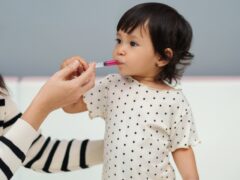A person’s overall health is about much more than the absence of disease. It’s the state of physical, mental, and social well-being. Ultimately, it’s the key to living a productive and satisfying life. Even young adults and teens need to be mindful about their health.
Path to Improved Health
You can break down the concept of health into different categories. These could include physical, mental, emotional, and behavioral health. There are things any person can do to stay healthy in these areas. As a teenager, there are some things you should pay special attention to.
Physical health: Taking care of your body
- Exercise regularly. Teens should be physically active at least 60 minutes of every day.
- Eat a healthy diet. Healthy eating is an important part of your growth and development. Eat plenty of fruits and vegetables, whole grains, a variety of protein foods, and low-fat dairy products. Avoid junk foods such as soda pop, fast food, and chips, even when you are a teen. This will help you as you get older.
- Maintain a healthy weight. Children and teenagers with obesity are more likely to have obesity as an adult. They are also at higher risk for other chronic illnesses, depression, and bullying.
- Get enough sleep. Most teens need between 9 and 9 ½ hours of sleep every night. Many average only 7 hours. Sleep has a strong effect on your ability to concentrate and do well at school.
- Keep up with vaccinations. Get a flu shot every year. If you haven’t gotten the HPV vaccine, ask your parents and doctor about it. It can prevent you from getting HPV and some kinds of cancer, including cervical cancer and throat cancer.
- Brush and floss your teeth. Make it a habit now and prevent tooth and gum problems in adulthood.
- Wear sunscreen. Getting just one bad sunburn as a child or teenager increases your risk of getting skin cancer as an adult. Do not use tanning beds. They increase your risk of skin cancer.
- Don’t listen to loud music. This can damage your hearing for the rest of your life.
Mental health: Taking care of your mind
- Learn ways to manage stress. You can’t avoid stress, so you need to learn healthy coping skills. This will help you stay calm and be able to function in stressful situations.
- Study and do your best in school. There is a strong link between health and academic success.
- Try to maintain a good relationship with your parents. Remember that they want what is best for you. Try to see where they are coming from when they set rules.
- Develop a good balance between school, work, and social life.
- Don’t try to take on too much. Limit your activities to the most important ones and give those 100%. Overextending yourself can lead to stress, frustration, or exhaustion.
Emotional health: Taking care of your feelings
- Know the signs of mental illness. These include:
- Anxiety
- Depression
- Excessive tiredness
- Loss of self-esteem
- Loss of interest in things you used to like
- Loss of appetite
- Weight gain or loss
- Out-of-character personality changes
- Pay attention to your moods and feelings. Don’t assume your negative thoughts or feelings are just part of being a teenager. If you’re worried about something, ask for help.
- Don’t be afraid to ask for help if you need it. If you can’t talk to your parents, talk to a favorite teacher or counselor at school. Talk to your family doctor or health care provider. Find an adult you can trust. If you’re feeling really sad or are thinking about harming yourself, get help right away.
- Accept yourself. If you feel like you have low self-esteem or a poor body image, talk to someone about it. Even just talking to a friend can help.
- Don’t bully other people. And if you are being bullied, tell a parent, teacher, or other adult. This includes being bullied online or on your phone.
Behavioral health: Taking care of your safety through your behaviors
- Avoid substance use or abuse. This includes alcohol, street drugs, other people’s prescription drugs, and any type of tobacco product or vaping.
- Drive safely. Motor vehicle crashes are the leading cause of death in U.S. teenagers. Always use your seat belt. Avoid riding in a car full of other teenagers. This can distract the driver and make an accident more likely. Never get in a car with a driver who has been drinking.
- Wear protective headgear. Wear a helmet when you are riding a bike or participating in sports to head injuries.
- Avoid violence. Stay away from situations where violence or fighting may cause you to be physically injured.
- Practice abstinence (no sex) or safe sex. If you have sex, always use condoms to help avoid sexually transmitted infections (STIs). If you are sexually active, talk to your doctor about contraceptives to avoid unplanned pregnancies. If you can’t use contraceptives, use condoms for birth control. Even if you can use contraceptives, these do not prevent STIs; use condoms in addition to other contraceptive methods.
What might my doctor do if I go see them?
The doctor might do any of the following to help you stay healthy:
- Determine your risk for certain health problems.
- Measure your height, weight, and blood pressure.
- Give advice about healthy lifestyle choices, like diet and activity.
- Offer immunizations, if needed.
Provide immunizations (shots or vaccines) to reduce your risk of getting diseases. These could include meningitis, tetanus, or HPV.
Things to Consider
Will the habits I have now really make a difference when I’m older?
Yes; 65% of all deaths in adults are caused by heart disease, cancer, and stroke. In many cases, these diseases are preventable. Many of the behaviors that cause these diseases begin at a young age. For example, teens who use tobacco are more likely to have heart disease, cancer, or stroke in adulthood.
At my age, what should I especially be concerned about?
The top killers of teenagers and young adults are accidents, homicide, and suicide. Cancer and heart disease are uncommon for teenagers, but can affect you at this age. Unplanned pregnancy and sexually transmitted infections can harm your health. They can also cause you social and personal problems.
Do young men have different health risks than young women?
Yes. Young men typically engage in riskier behavior than women, such as not wearing seatbelts. They’re also more likely to carry weapons, get into physical fights, use smokeless tobacco or marijuana, drink alcohol heavily, and have more sexual partners. On the other hand, young women have some special risks. They attempt suicide more often. They also try to lose weight in harmful ways more often than young men.
Should I talk to my doctor if I’m worried about my health or my body?
Yes. It’s important to talk to your doctor if you have any concerns about your health or your body. Your doctor is there to help you.
Questions to ask your doctor
- What steps can I take to stay healthy?
- Am I at risk for any illnesses or diseases?
- I’m worried about a specific part of my life. What should I do?
- What type of diet is healthy for me?
- What type of exercise should I do?
- How can I practice safe sex?
- I can’t talk to my parents or teachers about my problems. Who can I talk to?
ADVERTISEMENT
ADVERTISEMENT




